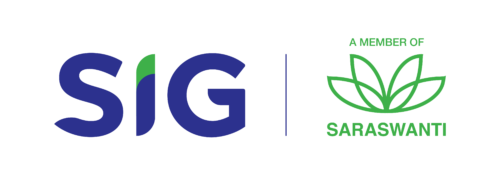Prove it Spicy by Scoville Heat Units Test!
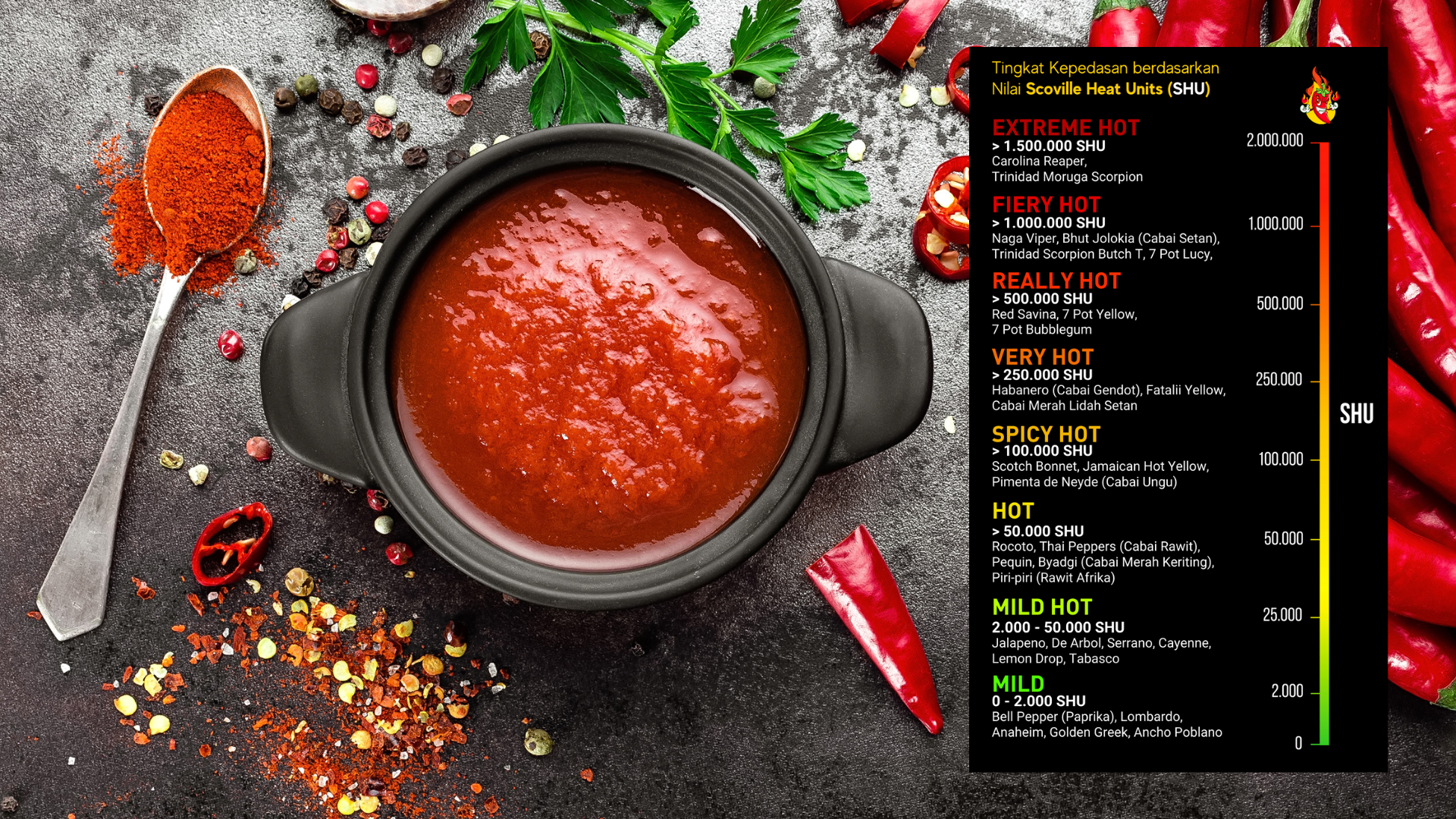
Capsaicinoids
Capsaicinoids are the chemical components in capsicum that give the sensation of a spicy taste. The most common and most abundant capsaicinoid in hot peppers is capsaicin. In the food industry, capsaicin content is often used as added value in products as an indicator of the level of spiciness through the Scoville Heat Units (SHU) unit of measurement (chilipeppermadness.com).
What level of spiciness do you want?
The Scoville scale developed by scientist Wilbur Scoville in 1912 is currently used as a benchmark for the spiciness and heat of chilies in “Scoville Heat Units”. The scale ranges from 0 to 16 million Scoville Heat Units (SHU), with 0 being no heat and 16 million being the maximum heat level (scovillescale.org).
Spicy & Delicious. So?
The rise of enthusiasts for spicy sensations in food results in products that can prove the level of spiciness to have more value. In addition to the delicious hot sensation, capsaicin in chili peppers is also known for its nutritional value which is rich in vitamins and minerals, and its antimicrobial and anticancer properties. But consuming spicy food in excess is certainly not recommended, especially for people with less tolerance for spicy food. Possible risks include nausea, vomiting, diarrhea, and stomach cramps (MedCrave).
How SIG Helps
As an ISO 17025 accredited laboratory, SIG succeeded in developing the Total Capsaicinoids test and measuring the Spiciness Level through the Scoville Heat Units (SHU) unit based on the AOAC 995.03 method using HPLC-UV instrumentation until the reading limit reaches 31 mg/kg or the equivalent of 464 SHU.
Library of Knowledge
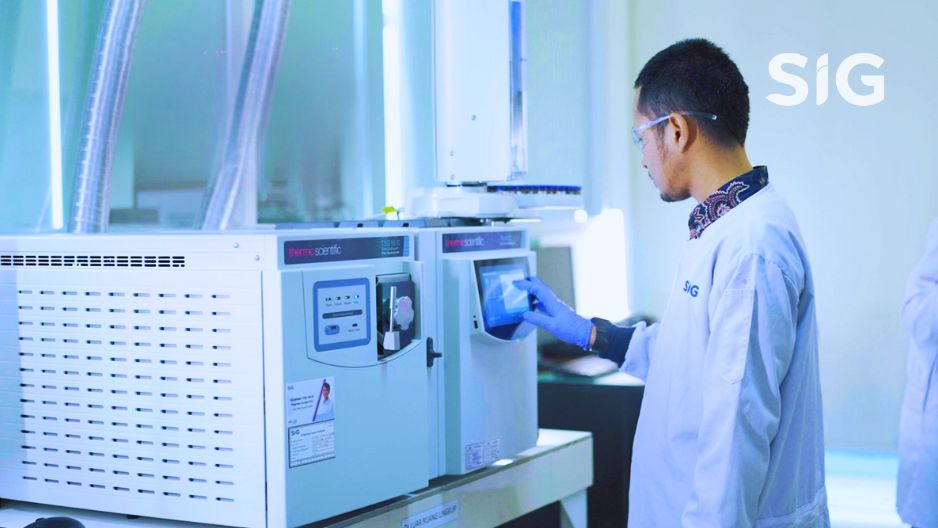
Ensuring Product Safety and Product Compliance with SIG Laboratory Testing
In the food, cosmetics, pharmaceutical, and various other industries—including even toys—ensuring product safety and regulatory compliance is a...

Food Safety: Why Is Laboratory Testing for Food Important for Health?
Food is a basic necessity in human life. People consume food every day to meet their nutritional needs, ensuring that the body functions properly....
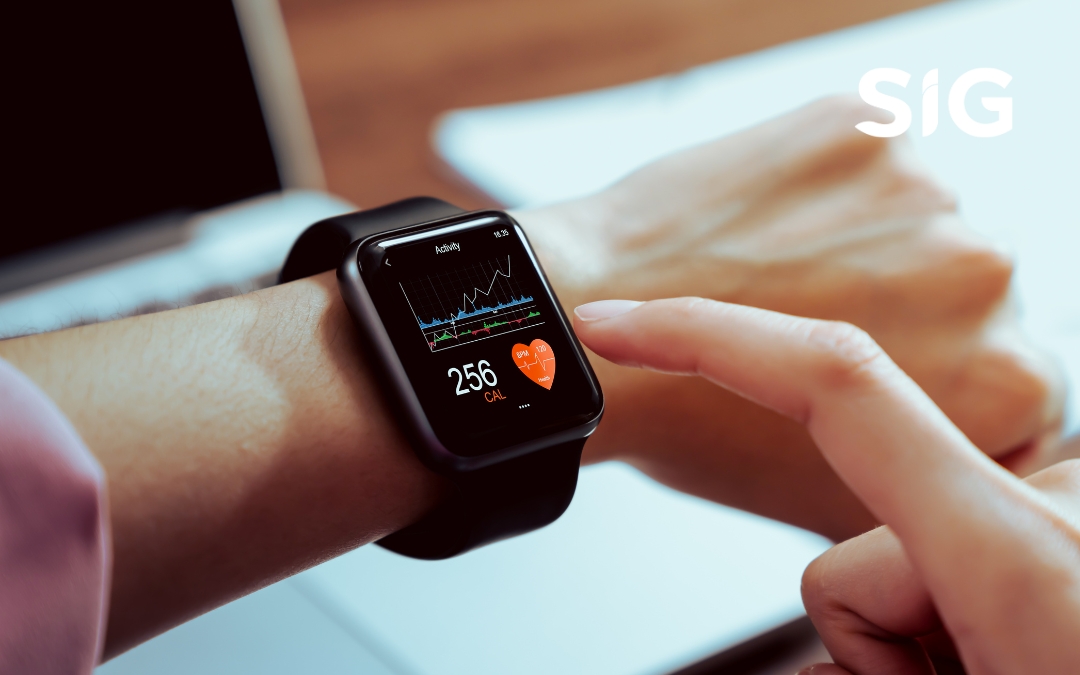
Make Sure Your Smartwatch Strap Does Not Cause Itching & Irritation with Toxicity Testing
Trends in Smartwatch Usage In recent years, the use of smartwatches has seen a significant increase. According to a survey by Rakuten Insight...
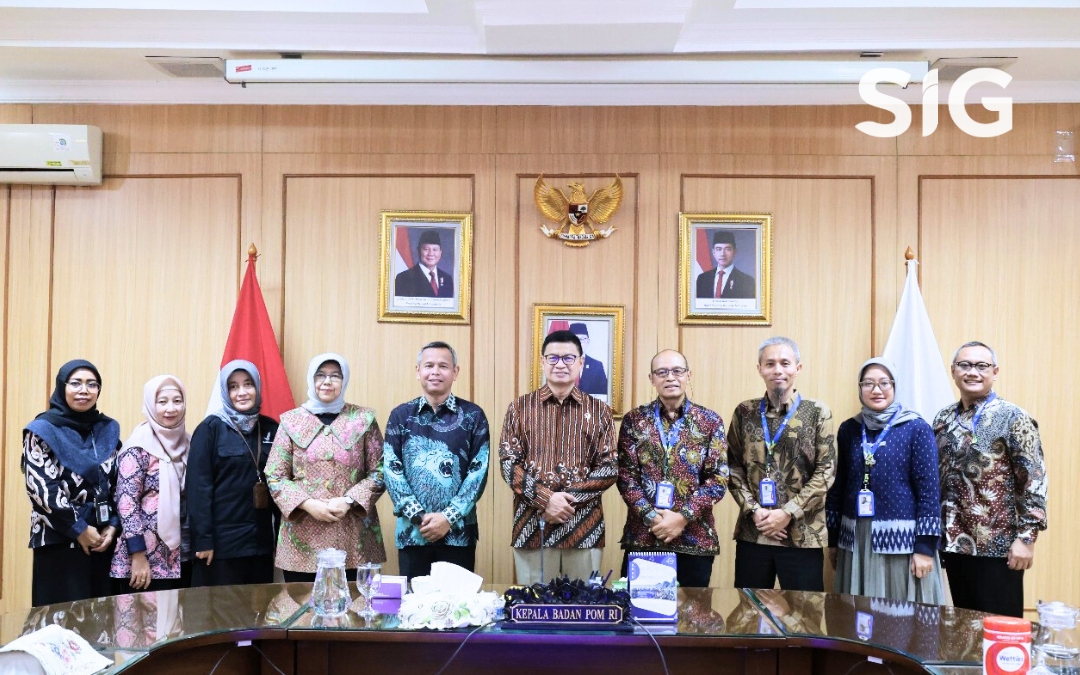
Audience with the Head of BPOM RI, SIG Ready to Support the Improvement of Product Safety & Quality in the Market
Jakarta, February 14, 2025 – SIG successfully held an audience with the Head of the Indonesian Food and Drug Authority (BPOM RI) to strengthen...
SIG Laboratory
Graha SIG, Jl Rasamala No. 20, Taman Yasmin, Bogor, Jawa Barat 16113.
Phone. +62 251 7532 348
WhatsApp. +62 82 111 516 516
Email. marketing@siglaboratory.co.id
SIG Jakarta
Jl. Percetakan Negara No. 52 B RT 006 / RW 001, Rawasari, Cempaka Putih, Jakarta Pusat 10570.
Phone. +62 21 2147 9292
SIG Medan
Jl. Bunga Asoka, Ruko Komp. Asoka Raya Residance No. 1, Medan Selayang, Sumatera Utara 20133,
WhatsApp. +62 822 7207 9665
Email. salesmedan.sig@saraswanti.com
SIG Semarang
Jl. Kanfer Raya Blok R No. 4 Pedalangan, Kec. Banyumanik, Kota Semarang, Jawa Tengah 50268.
Phone. +62 24 7004 0541
WhatsApp. +62 812 9000 5165
Email. cs.sigsmg@saraswanti.com
SIG Yogyakarta
WhatsApp. +62 896 4856 9422
Email. arifin.sig@saraswanti.com
Operational Hours
Monday to Friday
08.00 - 17.00 WIB.

FOLLOW US
